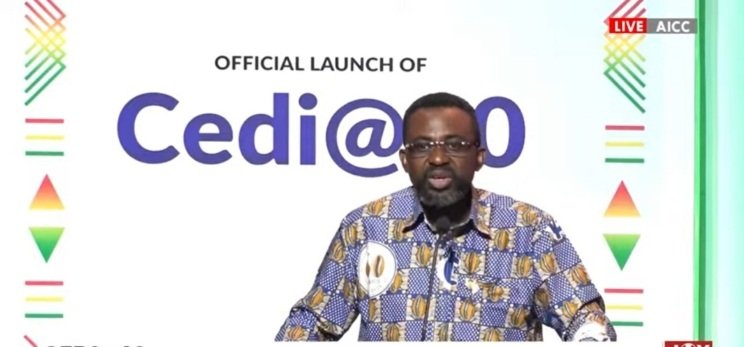Bright Simons, Vice President of IMANI Africa, has strongly criticized the ongoing scandal at the Electricity Company of Ghana (ECG), describing it as a glaring example of what he terms “Katanomics“—a fractured governance system where politics and policy exist in isolation.
Simons, who has been vocal about governance failures in Ghana, expressed his frustration over the public’s surprise at the revelations about ECG’s mismanagement.
“I am very shocked that they are shocked. What kind of middle class is this? So, all the many things IMANI and ACEP have been writing about how bad things are at ECG, they haven’t read any of it?”
Bright Simons
As such, he expressed disappointment in the disregard for well-researched reports on the sector’s crisis.
According to Simons, Ghana’s middle class has been too complacent, ignoring critical policy discussions and instead consuming public relations narratives spread by state officials.
“They seriously were paying more attention to the PR dross that the former ECG management were strewing all over the airwaves? What kind of middle-class people do that? They won’t read any carefully researched pieces even when there is no paywall?”
Bright Simons

His frustration arises from the seeming apathy of educated Ghanaians, who, despite enduring persistent power crises, soaring electricity tariffs, and widespread billing inefficiencies, remain largely passive in demanding accountability from public officials.
He believes that the current middle class fails to engage meaningfully with the root causes of policy failures, instead relying on superficial media narratives and soundbites.
Simons argued that Ghana needs a more proactive and well-informed middle class—one that not only recognizes policy shortcomings but also exerts sustained pressure on authorities to address systemic inefficiencies.
His remarks highlight the urgent need for a citizenry that actively participates in governance, ensuring that critical issues are tackled with depth and urgency rather than dismissed as fleeting public concerns.
A Case of ‘Katanomics’
Bright Simons coined the term “Katanomics” to characterize Ghana’s governance crisis.
The word “KATA” is derived from an ancient Greek term meaning “fracture” or “shatter,” while “nomy” or “nomics” originates from the Greek word for “norm,” representing governance.

He pointed out that this concept reflects that the country’s governance structures are fragmented, leading to systemic inefficiencies and policy failures..
“In short, I am arguing that, in Ghana, we have a FRACTURED GOVERNANCE CULTURE. One where policy has been filtered out of politics and politics filtered out of policy.”
Bright Simons
Simons argued that the current ECG scandal is just another manifestation of this flawed system.
IMANI Africa and the Africa Centre for Energy Policy (ACEP) have long advocated for ECG to be strictly regulated under public procurement laws, but politicians have been evasive on the matter.
“The middle classes seem clueless about all this. So, the mess continues. A critical mass of public opinion cannot be amassed to pile pressure on the political system about THE THINGS THAT MATTER THE MOST. The cacophony, therefore, continues. But nothing changes.”
Bright Simons

Bright Simons argued that Ghana’s political landscape is dominated by partisan squabbles rather than substantive policy discussions.
He challenged the public to recall any clear, coherent strategy from politicians regarding critical issues like the ECG crisis, emphasizing that the lack of meaningful policy debate hinders effective governance.
“I argue that this KATANOMY/KATANOMICS is why things are getting worse even as the country’s democracy matures. Policy has to become more political, more high-stakes, more engaging of middle-class attention. And politics has to become more about policy. We need our politicians coming to blows over POLICY DISAGREEMENTS.”
Bright Simons
Bright Simons shed light on the ongoing ECG scandal, pointing out key findings from recent reports that expose the financial losses caused by manipulated procurement practices.
He highlighted how management allegedly exploited the system to siphon at least $300 million through wasteful contracts over the past five years.
Despite the scandal gaining traction, Simons remains doubtful that any meaningful, policy-driven solutions will emerge from the political discourse.
He predicted that the conversation will be dominated by noise and partisan bickering rather than substantive discussions on how to prevent such mismanagement in the future.
The ECG scandal serves as a microcosm of Ghana’s broader governance dysfunction. The fundamental issue, as Simons argues, is not just corruption but a lack of structured policy enforcement and a disengaged populace.
Until governance and policy are reconnected, scandals like this will continue to plague the nation.
READ ALSO: Davido Makes History on Rolling Stone Africa Cover























